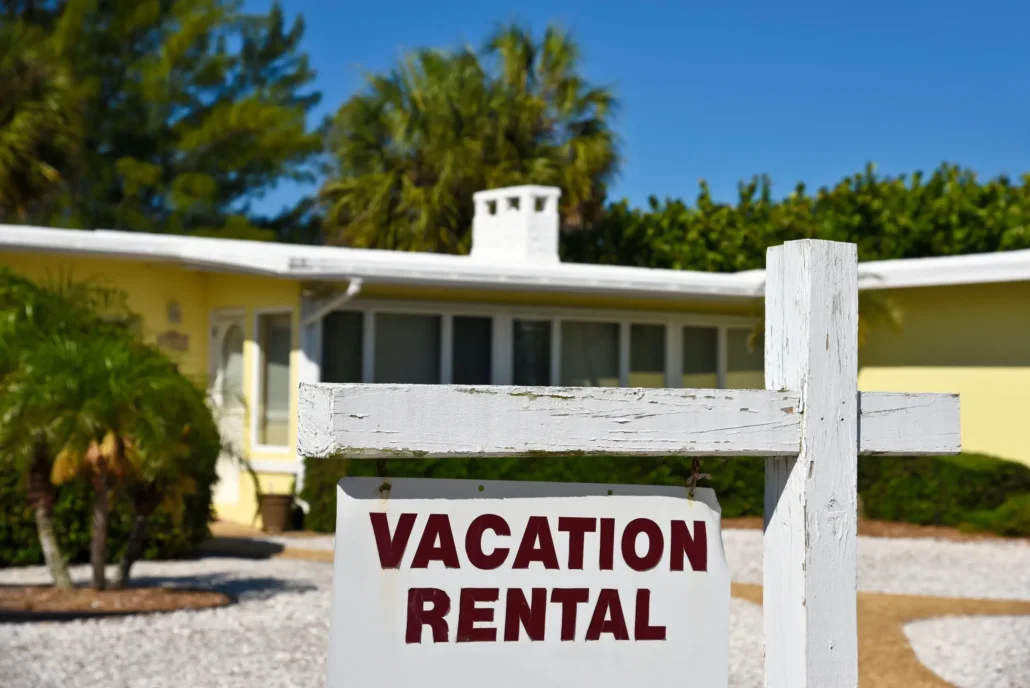Protect Your Investment with Specialized Dwelling Fire Insurance
Owning a rental or vacation home in Florida is an exciting opportunity, but it also comes with its share of risks. From fires to Florida’s unpredictable storms, protecting your property is key. A dwelling fire policy does just that—and despite the name, it covers much more than fire damage, offering peace of mind for the unexpected.
At People’s First Insurance, we’re here to make finding the right coverage simple. We’ll guide you to the best plan for your needs, so you can protect your investment and feel confident knowing your property is secure—no matter what comes your way.
Key Takeaways:
- Dwelling fire insurance is designed for rental and investment properties, not owner-occupied homes.
- It covers more than just fire damage, including risks like vandalism, storms, and more.
- This policy is ideal for vacation homes, rental properties, and second homes.
- Coverage levels vary, with options to protect the structure but not the tenant’s personal belongings.
- Unlike homeowners insurance, a dwelling fire policy is meant for properties you don’t live in full-time.
Get a Free Dwelling Fire Insurance Quote Today!
Whether you’re looking for a personalized quote for your dwelling fire insurance or have questions about your coverage options, the team at People’s First Insurance is ready to assist. No matter where you are in the process, we’re here to provide expert guidance and help you find the right policy to protect your rental or vacation property.
Understanding Dwelling Fire Insurance in Florida
What is Dwelling Fire Insurance?
A dwelling fire policy is a specialized form of property insurance designed to protect homes that aren’t your primary residence—think rental properties, vacation homes, or other non-owner-occupied properties. It focuses on covering the structure itself from a variety of potential perils, such as fire and vandalism, making it an essential safeguard for property owners.
While it shares some similarities with homeowners insurance, dwelling fire insurance is tailored to properties you don’t live in full-time. This makes it a critical safety net for landlords and owners of investment properties, ensuring that damage to the building doesn’t become a financial strain.
In a state like Florida, where many own second homes or seasonal rentals, this type of policy helps protect your investment, offering the right coverage without the complexities of insuring a primary residence.
Coverage Details
What Does a Dwelling Fire Policy Cover?
A dwelling fire policy covers much more than just fire damage—despite the name. Historically, these policies were focused on protecting properties from the devastating effects of fire, which was a primary concern for property owners. Over time, the coverage has expanded to include other risks, but the name has stuck.
Here’s what a dwelling fire policy typically covers:
- Structural Damage: The policy’s primary focus is on protecting the physical structure of your property—such as walls, roofs, and foundations—from damage caused by fire, lightning, windstorms, and more.
- Other Structures on the Property: Detached structures like garages, fences, or sheds are also covered under the policy, ensuring that more than just the main building is protected.
- Loss of Rental Income: If your rental property is damaged and becomes uninhabitable due to a covered event, the policy can reimburse you for the rental income you lose while repairs are made.
- Vandalism and Malicious Mischief: Coverage also extends to damages caused by vandalism or deliberate destruction of the property.
- Certain Types of Water Damage (excluding flood): Events like burst pipes or accidental water damage may be covered under your policy. However, coverage often depends on factors such as the home’s age, and some policies may exclude specific types of water damage. Flood protection requires a separate policy.
What Does a Dwelling Fire Policy Not Cover?
While a dwelling fire policy provides essential coverage for the structure of your rental or investment property, it’s important to know what it doesn’t cover. Like all insurance policies, there are specific exclusions that property owners should be aware of, especially in Florida’s unique environment.
Here are some common exclusions in a dwelling fire policy:
- Flood Damage: Flooding is not covered under a standard dwelling fire policy, even though water damage from incidents like burst pipes may be. In flood-prone areas like Florida, it’s important to purchase a separate flood insurance policy.
- Earthquake Damage: Damage caused by earthquakes or ground movement is typically excluded. If you’re in an area where this is a concern, supplemental earthquake insurance may be necessary.
- Neglect or Lack of Maintenance: Routine wear and tear, neglect, or failure to properly maintain the property are not covered. Insurance generally covers sudden and accidental damage, not long-term issues from neglect.
- Intentional Damage: Any intentional damage or destruction caused by the owner or tenants will not be covered.
- Tenant’s Personal Property: A dwelling fire policy focuses on the structure of the home, so personal belongings of tenants—like furniture, electronics, or clothing—are not covered. Tenants should obtain their own renters insurance to protect their personal items.
- Acts of War or Government Seizure: Events like war, military action, or government confiscation are generally excluded from coverage.
To fill these coverage gaps, consider the following tips:
- Flood Insurance: Especially important in Florida, a separate flood insurance policy can protect you from the costs of flood-related damage.
- Renters Insurance for Tenants: Encourage your tenants to get renters insurance, which will cover their personal belongings and offer additional liability protection.
- Umbrella Policies: For broader liability coverage, you may want to consider an umbrella insurance policy that offers added protection beyond the limits of your dwelling fire policy.
Understanding these exclusions helps you ensure your property is fully protected, either by supplementing with additional coverage or advising your tenants on their own insurance needs.
The Three Main Types of Dwelling Policies
There are three types of dwelling fire policies, each offering a different level of protection. Here’s a quick overview of the DP-1, DP-2, and DP-3 forms, and who might benefit from each:
- DP-1 (Basic Form):
- Covers: Only named perils, such as fire, lightning, and internal explosions.
- Settlement: Typically offers actual cash value (ACV), meaning depreciation is factored into the payout.
- Best For: Property owners seeking minimal coverage or for older, lower-value homes where budget is a primary concern.
- DP-2 (Broad Form):
- Covers: More named perils than DP-1, including additional risks like windstorm, hail, vandalism, and burglary.
- Settlement: Often provides replacement cost for the structure, so you’re reimbursed for the full cost of repairs or rebuilding (up to policy limits).
- Best For: Those who want more comprehensive coverage for moderate risks and a higher level of protection for their investment.
- DP-3 (Special Form):
- Covers: “All risks” for the structure unless specifically excluded, making it the most comprehensive option.
- Settlement: Provides replacement cost for the structure, offering the best protection without factoring in depreciation.
- Best For: Property owners who want maximum coverage and the broadest protection for their rental or investment properties.
Who Needs Dwelling Fire Insurance?
A dwelling fire policy is essential for property owners in various situations where traditional homeowners insurance may not apply. Here’s a look at who typically benefits from this coverage:
- Owners of Seasonal or Vacation Homes:
- If you own a beach house in Florida that you only use part of the year, this policy protects your property from damage when you’re not there to monitor it.
- Landlords of Single-Family Rentals:
- You rent out a single-family home and need coverage for the structure, but you don’t need to insure the personal property of your tenants.
- Owners of Multi-Unit Buildings (1-4 Units):
- If you own a duplex or a small apartment building, a dwelling fire policy ensures the structure is protected without covering the tenants’ personal belongings.
- Homeowners with Unoccupied Properties:
- If you have a property that’s temporarily vacant while awaiting a new tenant or sale, this policy safeguards the building from unexpected damage during the vacancy.
- Owners of Older, Lower-Value Homes:
- If you own an older property that may not qualify for a typical homeowners policy, a dwelling fire policy can provide essential protection at a more affordable rate.
- House Flippers and Real Estate Investors:
- If you buy and renovate properties to sell or rent out, you need coverage that focuses on the structure during renovation, especially if the property is unoccupied for a period of time.
Dwelling Fire vs. Homeowners Insurance
At first glance, dwelling fire insurance and homeowners insurance may seem very similar—they both protect your property from damage and provide coverage for certain risks. However, the key difference lies in whether the property is owner-occupied or not. Homeowners insurance is designed for full-time residences, while dwelling fire insurance is specifically for non-owner-occupied properties like rental homes or vacation properties. Let’s explore the most important differences to help you decide which policy is right for you.
- Primary Purpose:
- Dwelling Fire Insurance: For non-owner-occupied properties such as rentals, vacation homes, or investment properties.
- Homeowners Insurance: For owner-occupied primary residences.
- Property Coverage:
- Dwelling Fire Insurance: Covers the structure of the home.
- Homeowners Insurance: Covers both the structure and personal belongings inside.
- Personal Belongings:
- Dwelling Fire Insurance: Does not cover tenant belongings (tenants need renters insurance).
- Homeowners Insurance: Covers the homeowner’s personal property.
- Loss of Use:
- Dwelling Fire Insurance: Covers loss of rental income if the property becomes uninhabitable.
- Homeowners Insurance: Covers living expenses if the homeowner needs to relocate.
Safeguard Your Property with the Right Coverage
Wondering how much coverage you need or how to find the best policy for your property? That’s where People’s First Insurance comes in. Whether you’re protecting a rental home, vacation property, or seasonal residence, we’re here to help you navigate your options and find a dwelling fire policy that fits both your needs and your budget.
With our expertise and personalized service, we’ll ensure you have the right coverage to protect your investment and give you peace of mind.
Contact People’s First Insurance today, and let us guide you to the right protection for your property.
FAQs
What is the difference between a landlord policy and a dwelling policy?
A landlord policy and a dwelling fire policy are both designed to protect rental properties, but they differ in scope. A landlord policy typically includes broader coverage, such as liability protection in case a tenant is injured on the property. It may also cover personal property the landlord uses to maintain the rental, like lawn equipment. A dwelling fire policy, on the other hand, focuses primarily on structural coverage for non-owner-occupied properties and may not include as many additional features as a landlord policy. It is ideal for those seeking coverage for the building itself, especially in cases like vacation homes or investment properties.
Can you just get fire insurance on your home?
While you can get insurance that covers fire damage, most modern policies, such as a dwelling fire policy and homeowners insurance, offer much more comprehensive coverage than just fire. In addition to protecting against fire, these policies can cover other perils like windstorms, lightning, and vandalism. However, if you’re looking for minimal coverage focusing solely on fire risk, you’ll need to discuss specific fire insurance options with an insurance agency like us to ensure you’re adequately protected.
How much does a dwelling fire policy cost?
The cost of a dwelling fire policy depends on several factors, including the location, size, and condition of the property. In Florida, factors such as the property’s exposure to risks like hurricanes or storms also play a role. On average, dwelling fire insurance tends to cost less than a standard homeowners policy because it typically covers only the structure and not personal belongings. However, the exact cost will vary based on the specific coverage limits and any additional protections you choose.
How is dwelling coverage cost determined?
The cost of dwelling coverage is determined by multiple factors, such as the replacement cost of the property, its location, age, and the materials used to build it. Insurers will also consider risks like the property’s proximity to natural disaster zones (e.g., flood or hurricane-prone areas in Florida) and the type of coverage selected (basic or comprehensive). Other factors like deductibles and any optional endorsements or riders will also affect the total premium.
Why is it called a dwelling fire policy?
The term dwelling fire policy is a historical reference. Originally, this type of insurance was primarily focused on covering fire damage, which was one of the most common risks property owners faced. Over time, dwelling fire insurance has evolved to cover a broader range of perils like wind, vandalism, and certain types of water damage, but the name remains the same. Despite the focus on fire in the title, the policy offers protection against multiple risks beyond just fires.
Is dwelling fire the same as renters insurance?
No, dwelling fire insurance is not the same as renters insurance. A dwelling fire policy is designed to protect the structure of a rental or investment property that the owner does not occupy, covering damage to the building itself. Renters insurance, on the other hand, is for tenants and covers their personal belongings inside the property, along with liability protection for the tenant. In short, dwelling fire insurance is for property owners, while renters insurance is for tenants.



